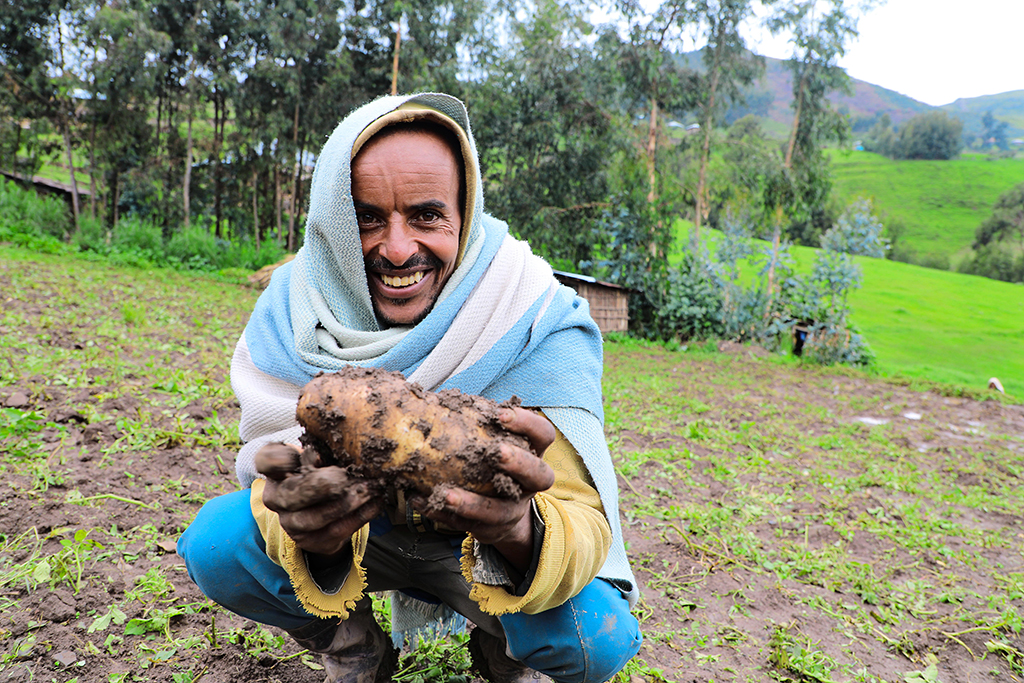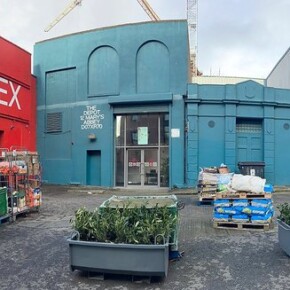Southsider credits humble spud with success in Ethiopia
Dublin People 27 Apr 2019
A SOUTHSIDE woman leading Concern Worldwide’s aid relief work in Ethiopia has credited Irish potatoes with a major reduction in food shortages in an area prone to drought and extreme poverty.
Dundrum native Eileen Morrow, who is Concern’s Ethiopia Country Director, said the humble spud was introduced by the Irish aid agency into the country’s drought-prone northern highland regions of South Wollo in Amhara in 2007, which has boosted the local economy.
The vegetable is thriving where other crops had failed up to 3,000 metres above sea level (Ireland’s highest mountain Carrauntoohil in Co. Kerry is 1,038 metres above sea-level) where visitors can struggle to breathe.
Eileen and her team recently received confirmation of this success when four districts, Dessie Zuria, Tenta, Legambo, and Delanta, which were classed as hunger hotspots, were found by a joint UN/Ethiopian government body to no longer be in immediate need of humanitarian assistance.
Their emergency response priority status dropped from one, meaning the situation is extremely urgent, to the lowest level of three, meaning they require monitoring, but no longer lack enough food for an active and healthy life.
This dramatic improvement in the four districts where Concern works in South Wollo, with a combined population of over 704,000 people, is the first since this hunger “hotspot classification” measurement system was introduced in 2000.
“This incredible success has broken the cycle of dependence on emergency relief and restored dignity and hope in areas that have been hit by recurrent disasters,” said Eileen.
“It is very challenging to increase the yield of crops in high altitudes. Very little can thrive at 3,000 metres, but the Irish potato has proven to be a rare exception.
“When I first visited our projects there in 2016 during a major drought in the country, it was a real surprise to see potatoes growing so successfully at an altitude that had me struggling to breathe.”
Eileen said the Irish potato was key to solving the biggest challenge faced by the highland population of Ethiopia.
They began piloting potato production for food 12 years ago with just 16 farmers in the Dessie Zuria district and have since scaled this up to more than 12,000 farmers.
“We improved the varieties of potatoes available – namely Belete, Gudeni, and Jaleni,” she said.
“They have turned out to be very resilient and productive in drought affected highland areas, while other main crop staples like barley withered.
“Initially, potato farming was a hard sell. Families here were used to eating barley and they were dependent on it for their livelihoods.
“We decided to focus on younger generations and eventually we managed to convince 16 youths to pilot potato farming on small plots of land – and now the entire region is reaping the awards.
“Extremely poor people in the highlands who would normally be experiencing extreme food shortages are instead generating profits and are no longer dependent on the government social protection scheme.”
Concern said barley in the region fetches 6,400 Ethiopian Birr (€199) per hectare, while a hectare of Irish potatoes can go for up to 62,000 Ethiopian Birr (€1,932), which is an increase of 870 per cent.
To learn more about Concern’s work log onto www.concern.net.
- Southsider credits humble spud with success in Ethiopia












